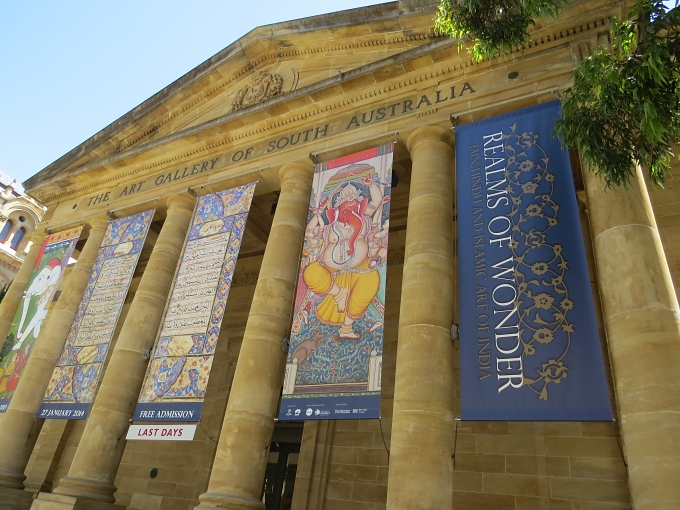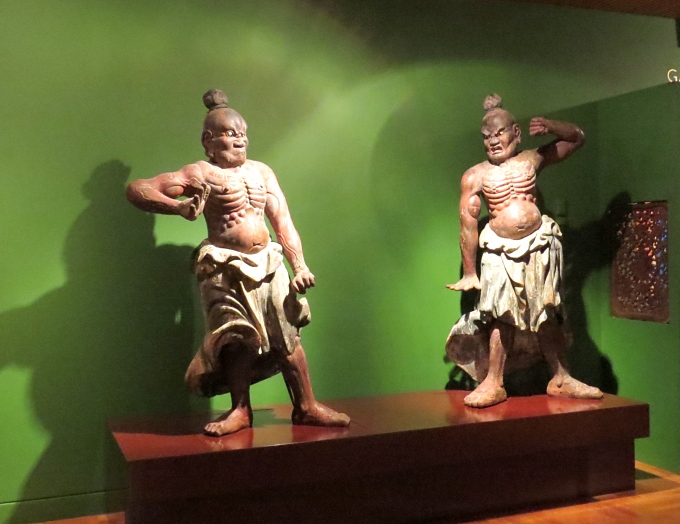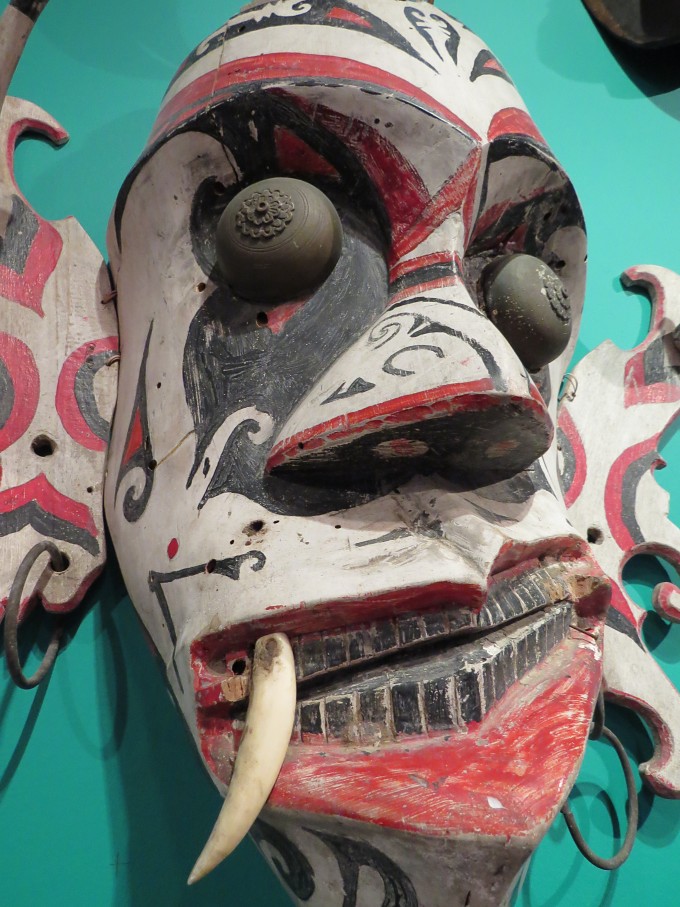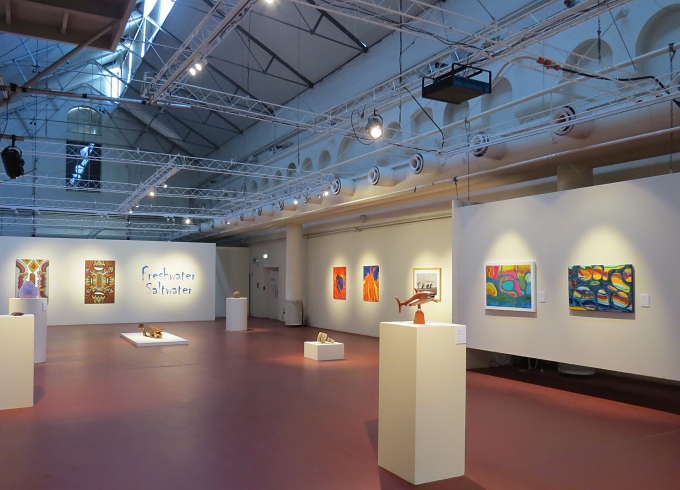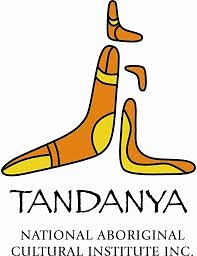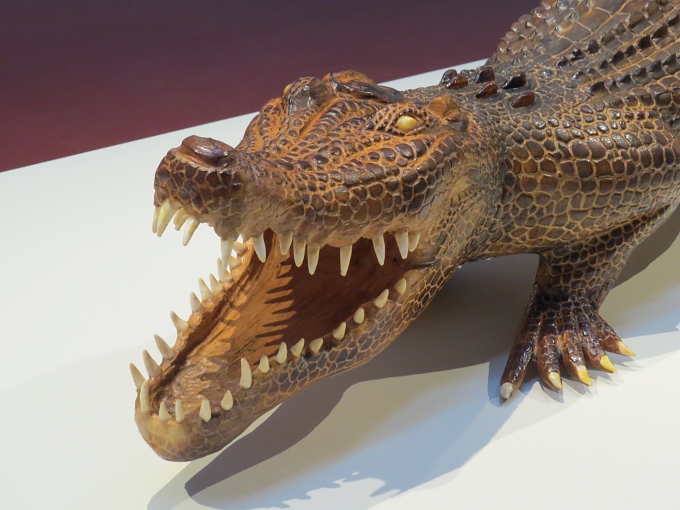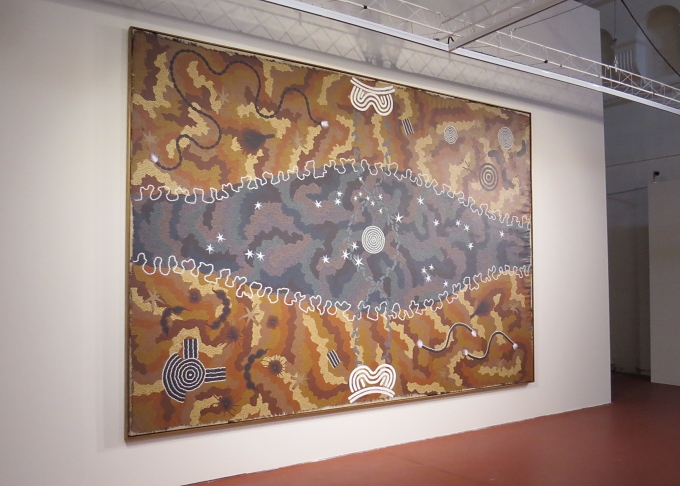Art in Adelaide
/Art Gallery of South Australia and Tandanya
We were interested in getting a little culture and with the temps soaring into the 100F's (40C's), an air-conditioned art gallery didn't sound bad at all. We headed to the Art Gallery of South Australia first since it was just a few blocks up from the train station on North Terrace, Adelaide's “culture boulevard".
The Art Gallery of South Australia was founded in 1881 and is housed in a beautiful, stately building next to the South Australian Museum and the University of Adelaide. Its collection of 38,000 pieces includes all types of media from paintings and sculptures to ceramics, metalwork, photographs, fabric and jewelry and most everything in between. The galleries are spacious with arched dome roofs that allow in soft, natural light.
We were most interested in the Australian and Indigenous Art.
But the Asian galleries were very interesting, like these life-size carved Japanese temple guards ...
and a wall of Indonesian dance masks
and the only dedicated Islamic gallery in Australia.
A late lunch at the gallery and we gasped as we left the A/C and headed out into the heat. We took the free downtown circulator bus to within a block of Tandanya, the oldest Aboriginal owned and managed gallery of Aboriginal and Torres Islander art in Australia.
Tandanya, by the way, is the name given by the indigenous people, the Kaurna (pronounced Garna), to their native lands in the Adelaide area. It's the word for “red kangaroo place” and their logo reflects this.
The quality and diversity of the artwork was wonderful: acrylics, carvings, weaving, fabric, all highly influenced by the Aboriginal beliefs, myths and natural surroundings. The gallery is not large, but each piece was well-documented and for sale. A carved croc was particularly beautiful.
We were introduced for the first time to the works of Clifford Possum Tjapaltjarri, probably the most renowned Aboriginal painter of all times. Several of his works were on display which brought up the question of Aboriginal Dot Painting which is very distinct and unique. A helpful docent answered thoughtfully and further research provided more answers. It's all theory, but the best answer is probably … keeping secrets.


